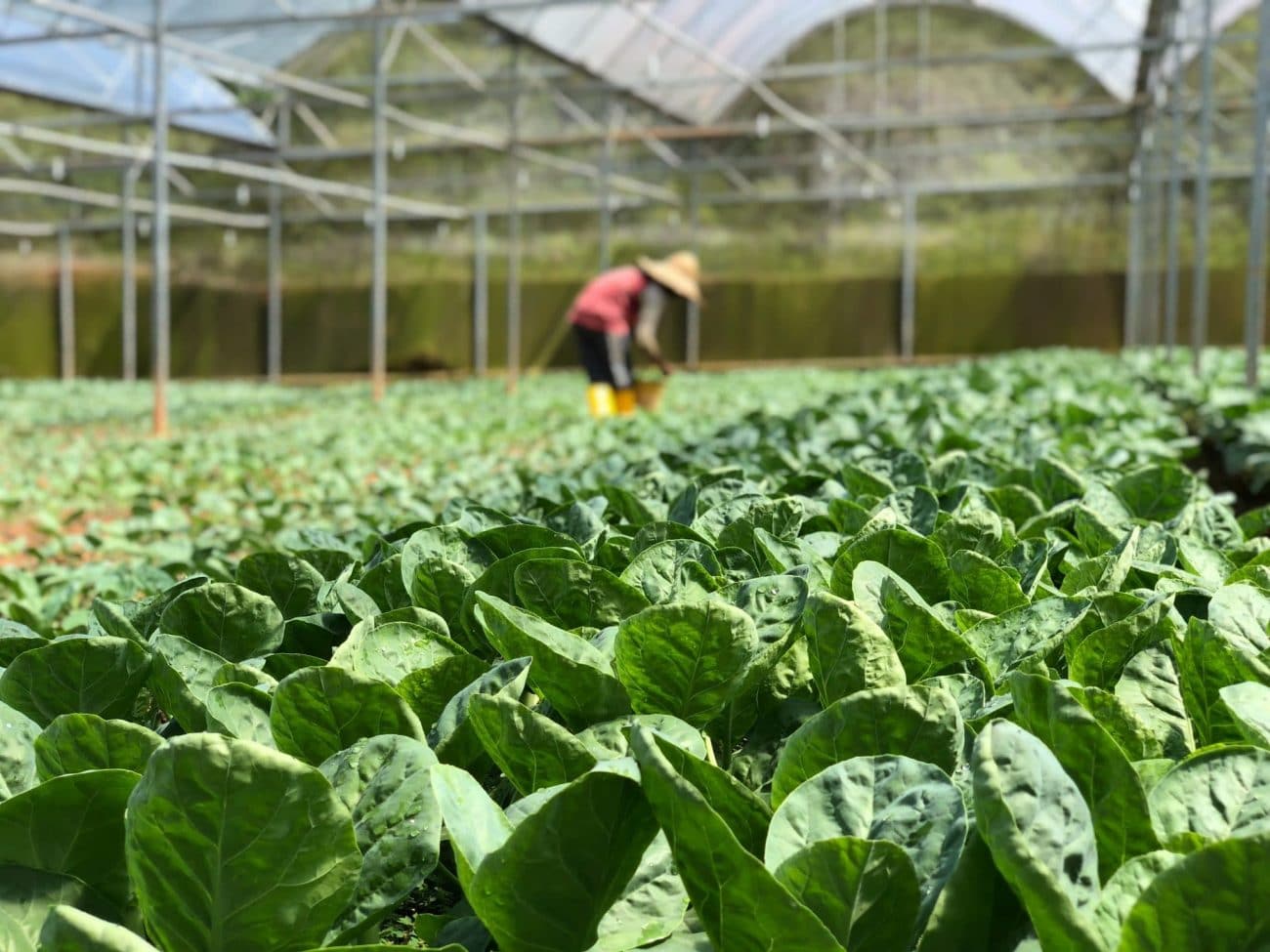Is Organic Food More Nutritious? An In Depth Guide Examining Organic Food Nutrition

The organic food movement has gained momentum in recent years, with many people turning to organic produce for their dietary needs. But is organic food more nutritious than its conventionally grown food? This article aims to answer that question by examining various aspects of organic food, including nutritional content, farming practices, and environmental impact, and the role soil plays in nutrition.
1. What is Organic Food?
Organic food refers to agricultural products that are grown and processed without the utilization of synthetic chemicals, including pesticides, herbicides, and fertilizers. The term organic also encompasses a holistic approach to agriculture, focusing on ecological balance, biodiversity, and sustainable farming practices. Organic farming methods prioritize soil health, water conservation, and pollution reduction while utilizing techniques such as crop rotation, composting, and biological pest control to maintain a sustainable and healthy ecosystem.
The United States Department of Agriculture (USDA) has established strict standards for organic certification under the National Organic Program (NOP). These standards govern the entire production process, from seed sourcing and soil management to harvesting and processing. To be certified as organic, farmers and producers must adhere to these regulations and undergo regular inspections by USDA-accredited certifying agents.
According to the USDA, organic agriculture is defined as “an ecological production management system that promotes and enhances biodiversity, biological cycles, and soil biological activity. It is based on minimal use of off-farm inputs and on management practices that restore, maintain, or enhance ecological harmony.”
Organic farming practices have gained traction globally, with organizations like the European Union’s (EU) European Commission, the Soil Association in the United Kingdom, and the Canadian Food Inspection Agency (CFIA) setting their own organic standards and certification programs.
The adoption of organic farming methods is driven by a growing awareness of the potential benefits to human health, animal welfare, and the environment, as well as consumer demand for more sustainable and natural food options.
2. Nutrient Content Found in Organic Food
Numerous studies have investigated the nutritional content of organic and conventionally grown produce, yielding varying results. While the overall consensus among experts is that no substantial difference in nutrient content exists between the two types of food, some research supports the case that organic food is more nutritious than conventional food.
A comprehensive meta-analysis published in the British Journal of Nutrition in 2012, which examined 343 peer-reviewed studies, discovered that organic crops had higher concentrations of certain antioxidants, such as polyphenols, and lower levels of toxic metals like cadmium. The researchers concluded that switching to organic food could provide the same antioxidant benefits as consuming an extra one to two servings of fruits and vegetables daily, which suggests that organic food may have a nutritional edge over conventional food.
Although some experts, like Dr. Dariush Mozaffarian, argue that factors like soil quality, weather conditions, and crop varieties have a more significant impact on nutrient content than whether the food is grown organically or conventionally, it is important to note that organic farming practices contribute to healthier soil, which could lead to more nutrient-rich produce.
Additionally, a systematic review published in the Annals of Internal Medicine in 2012 analyzed 237 studies comparing organic and conventional food. While the review concluded that the nutrient content differences between organic and conventional food were not statistically significant, it also found that organic food had lower pesticide residue levels and a 30% lower risk of pesticide contamination. This suggests that organic food may offer additional health benefits, even if the differences in nutrient content are not substantial.
Dr. Crystal Smith-Spangler, the lead author of the study and an assistant professor of medicine at Stanford University, acknowledged that the research team was surprised not to find that organic foods were uniformly more nutritious than conventional foods. However, this finding does not negate the possibility that organic food may provide specific nutritional advantages in some cases.
3. The Role of Soil Health in Nutrient Content
Soil health plays a crucial role in determining the nutrient content of food, as healthy soil provides the essential nutrients that plants need for optimal growth. Organic farming practices, such as composting and crop rotation, contribute to better soil health and may affect the nutritional quality of the produce. In this section, we will explore the connection between soil health and nutrient content, with examples and quotes from reputable scientists.
Organic Matter and Soil Fertility
Organic farming practices prioritizes the addition of organic matter, such as compost and cover crops, to the soil. This organic matter improves soil structure, water retention, and nutrient availability for plants. Dr. Elaine Ingham, a soil microbiologist and the founder of Soil Foodweb Inc., states that “organic matter is the key to building soil fertility, and healthy soils lead to more nutrient-dense food.”
Crop Rotation and Soil Health
Crop rotation, a common practice in organic farming, involves growing different types of crops in the same area in sequential seasons. This practice can help to maintain soil fertility by preventing the depletion of essential nutrients. Dr. David Montgomery, a professor of geomorphology at the University of Washington, explains that “crop rotation helps maintain the balance of nutrients in the soil, which is essential for growing nutrient-rich produce.”
Biological Pest Control and Soil Health
Organic farming practices employ biological pest control methods, which involve using beneficial insects, microorganisms, or other natural predators to manage pests. This approach can help to preserve soil health by reducing the need for synthetic pesticides, which can have detrimental effects on soil microbes and overall soil fertility. Dr. Kris Nichols, a soil microbiologist and the founder of KRIS Systems Education & Consultation, emphasizes the importance of biological pest control, stating that “by using natural predators to control pests, we can protect the health of our soils and ultimately grow more nutrient-dense food.”
The Role of Soil Microorganisms
Soil microorganisms play a vital role in nutrient cycling, making nutrients available to plants and contributing to soil fertility. Organic farming practices, such as the use of compost and reduced tillage, can support the growth of beneficial soil microbes, leading to more nutrient-rich food. Dr. Christine Jones, a soil ecologist and the founder of Amazing Carbon, highlights the role of soil microbes in nutrient availability, stating that “soil microorganisms help to release essential nutrients from organic matter and make them available to plants, which can result in more nutrient-dense crops.”
4. The Impact of Organic Farming Practices on Nutrient Content
Farming practices can have a considerable impact on the nutrient content of food. Organic farming methods focus on sustainable and environmentally friendly practices, which can lead to healthier soil and potentially more nutrient-dense produce. Some specific examples of how organic farming practices influence nutrient content, along with quotes from reputable scientists, are provided below.
Avoidance of Synthetic Chemicals
Organic farming avoids the use of synthetic chemicals, such as pesticides, herbicides, and fertilizers, which could potentially contaminate crops and diminish their nutritional value. Dr. Chensheng Lu, an associate professor of environmental exposure biology at the Harvard T.H. Chan School of Public Health, explains that “by choosing organic food, you reduce your risk of exposure to pesticide residues and antibiotic-resistant bacteria.” This reduction in chemical exposure can potentially lead to higher levels of certain nutrients in organic food.
Soil Health and Nutrient Uptake
Organic farming practices prioritize soil health, which can lead to improved nutrient uptake by plants. Dr. Jessica Shade, Director of Science Programs at The Organic Center, emphasizes the importance of soil health, stating that “healthy soils are the foundation of a healthy food system. Organic farming practices improve soil health, and healthier soils grow more nutrient-dense crops.” Techniques such as composting, crop rotation, and cover cropping can contribute to increased soil fertility and, consequently, more nutrient-rich produce.
Biodiversity and Ecosystem Health
Organic farms tend to have greater biodiversity, providing habitats for various species of plants, animals, and microorganisms. This biodiversity can contribute to a more resilient ecosystem and promote the growth of more nutrient-dense food. Dr. John P. Reganold, a professor of soil science and agroecology at Washington State University, emphasizes the role of biodiversity in organic farming, stating that “organic systems, on average, have higher biodiversity, which can improve pollination and natural pest control, leading to potentially more nutrient-dense crops.”
Reduced Nitrogen Fertilization
Organic farming typically employs lower levels of nitrogen fertilization compared to conventional farming. Excessive nitrogen fertilization can reduce the concentration of certain nutrients in crops, such as vitamin C and essential minerals. Dr. Charles Benbrook, a research professor at the Center for Sustaining Agriculture and Natural Resources, Washington State University, explains that “reduced nitrogen fertilization in organic farming can lead to higher levels of antioxidants, such as polyphenols, in crops, as well as lower levels of harmful nitrates.”
5. Pesticide Residues
One advantage of organic food is that it tends to have lower levels of pesticide residues. Pesticides are chemicals used in conventional farming to protect crops from pests and diseases. While the levels of these chemicals in conventionally grown food are typically within safe limits, some people may prefer organic food to reduce their exposure to these chemicals.
Dr. Chensheng Lu, an associate professor of environmental exposure biology at the Harvard T.H. Chan School of Public Health, explains that “by choosing organic food, you reduce your risk of exposure to pesticide residues and antibiotic-resistant bacteria.”
6. Impact on Taste and Freshness
Many people believe that organic food tastes better and is fresher than conventionally grown produce. While taste is subjective, the freshness of organic produce may be due to the fact that it is often sold closer to where it was grown, reducing the time it takes to get from farm to table. Additionally, organic farming methods can contribute to better soil health, which may affect the taste and quality of the produce.
Celebrity chef and organic food advocate, Alice Waters, founder of the renowned farm-to-table restaurant Chez Panisse, has long promoted the taste benefits of organic food, stating that “the most important thing about organic food is the delicious taste that’s in the food because it’s grown in the ground that’s really cared for.”
7. Environmental Impact
Organic farming practices can have a positive impact on the environment by promoting biodiversity, conserving water, and reducing pollution. By avoiding synthetic chemicals, organic farms can reduce the risk of soil and water contamination. Organic farms also tend to use less energy and produce fewer greenhouse gas emissions than conventional farms, helping to combat climate change.
Dr. John P. Reganold, a professor of soil science and agroecology at Washington State University, emphasizes the environmental benefits of organic farming, stating that “organic systems, on average, have higher soil quality and reduce soil erosion; use less energy and water; and produce less pollution and greenhouse gas emissions.” Organic farms also foster greater biodiversity, providing habitats for various species of plants, animals, and microorganisms.
8. Food Safety and GMOs
Organic food is subject to the same food safety regulations as conventionally grown food. However, organic food production generally avoids the use of GMOs, which are prohibited by organic standards. GMOs have been a topic of debate, and while they can offer benefits like increased crop yields and resistance to pests, some consumers prefer to avoid them due to potential long-term health and environmental concerns.
Dr. Jane Goodall, the renowned primatologist and conservationist, has expressed concerns about GMOs, stating that “we’re pushing nature too far with genetically modified organisms. We don’t know the long-term consequences of consuming GMOs, and it’s better to be cautious and stick to organic food.”
Conclusion
While the nutritional content of organic and conventionally grown food may not differ significantly, there are other factors to consider when deciding whether to consume organic products. Organic farming practices benefit the environment, reduce exposure to pesticide residues, and promote animal welfare, while some individuals may find the taste and freshness of organic food superior. Furthermore, organic food avoids the use of GMOs, which some consumers prefer to steer clear of due to potential long-term health and environmental concerns.
Copyright © 2023 Organic Shortlist.



